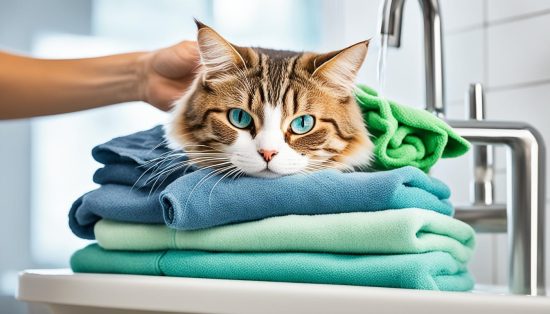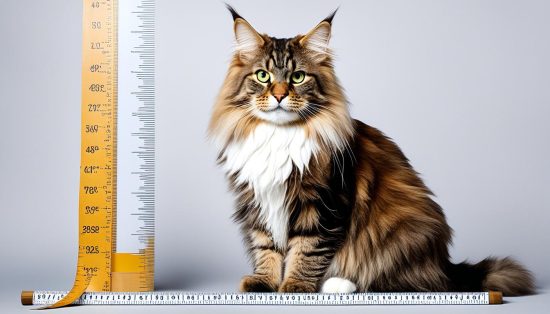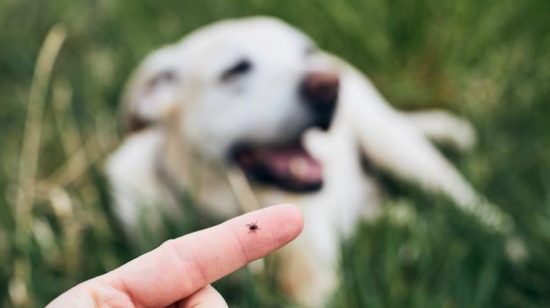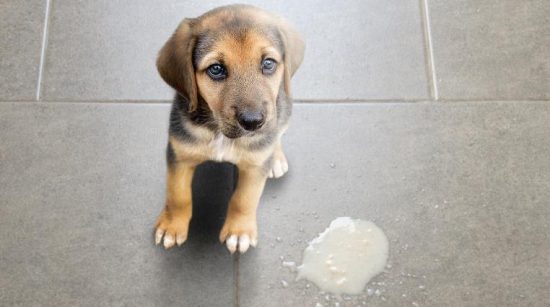How Long Can a Cat Go Without Eating? : The Truth
How long can a cat go without eating? Discover the truth about cats and food deprivation, and when to worry about your feline friend not eating.
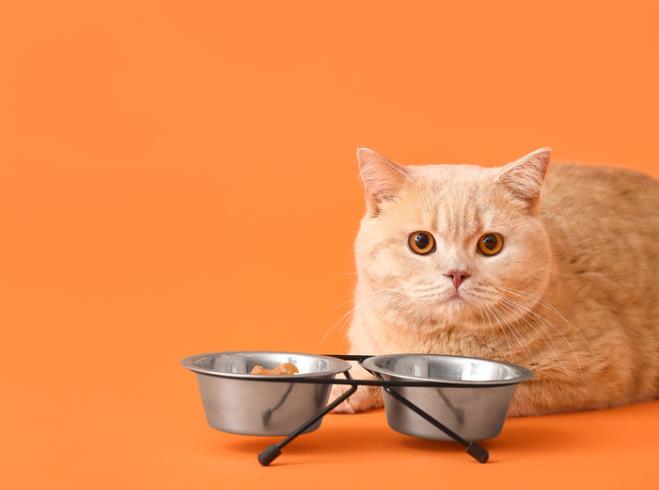
A surprising discovery was made by researchers, who found that cats can survive up to two weeks without food, provided they have access to water. However, most cats would likely only last three to four days, even with water available. This startling fact highlights the critical importance of understanding a cat’s eating habits and the potential risks associated with prolonged fasting.
While cats’ resilience may seem impressive, going without food for an extended period can severely affect their health and well-being. As the old adage goes, “a cat’s nine lives” may be tested if their dietary needs are unmet. In this comprehensive guide, we’ll delve into the truth about how long can a cat go without eating, the potential risks, and the steps you can take to ensure your feline friend stays happy, healthy, and well-fed.
Importance of Understanding a Cat’s Eating Habits
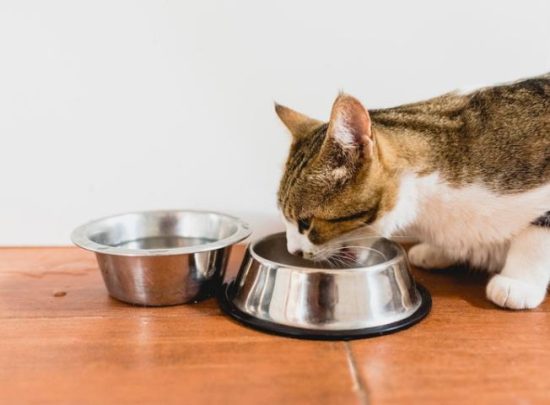
Cats are obligate carnivores, meaning they require certain nutrients found primarily in animal-based foods. A cat’s eating habits can provide valuable insights into their overall health and well-being. Monitoring a cat’s food and water intake, as well as any changes in their behavior, can help pet owners identify potential issues early on and take appropriate action.
Potential Risks of Prolonged Fasting
It’s important to emphasize that if a cat goes for two days without food, it’ll become malnourished and unwell. Water is essential for a cat’s body to work correctly, and the average time a cat can survive without it is three to four days. Within 24 hours of not drinking water, cats will become dehydrated, and the longer a cat is not drinking water, the worse dehydration will become, electrolyte imbalances will occur, and organ damage.
How Long Can Cats Survive Without Food?
Cats are known for their independent nature and often get a reputation for being aloof, but the truth is, they are very dependent on a consistent, reliable food source to maintain their health and wellbeing. While it’s a common misconception that cats can survive for weeks without eating, the reality is quite different.
Average Survival Time for Healthy Cats
Healthy cats can typically survive for around 3-4 days without food, provided they have access to water. However, this is the absolute maximum, and the cat will become increasingly malnourished and unwell the longer it goes without nourishment. In fact, veterinarians emphasize that if a cat goes for just 2 days without eating, it will start to become malnourished and sick.
Factors Affecting Survival Time
Several factors can influence how long a cat can go without food before their health becomes seriously compromised. Factors such as the cat’s age, overall health, and activity level can all play a role. Kittens, senior cats, and those with underlying medical conditions may have an even shorter survival time without food. Additionally, active outdoor cats that burn more calories may not be able to survive as long as their indoor, less active counterparts.
Regardless of the specific circumstances, it’s crucial to remember that cats should never be intentionally deprived of food for an extended period. Their bodies are simply not designed to cope with prolonged fasting, and the consequences can be severe, potentially leading to life-threatening conditions like hepatic lipidosis, also known as fatty liver disease.
Why Cats Stop Eating?
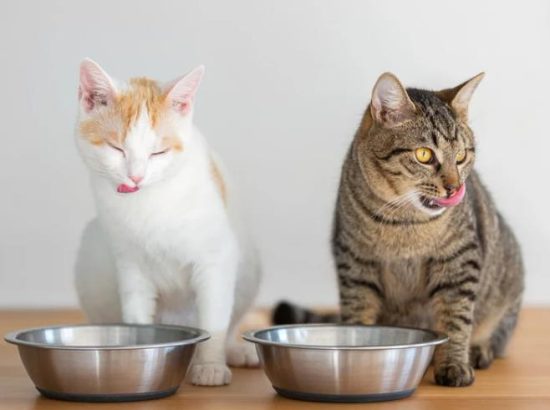
Cats can stop eating or drinking for various reasons, including medical conditions, environmental stressors, and personal food preferences or aversions. Understanding the underlying causes can help pet owners address the issue and ensure their feline companions remain healthy and well-nourished.
Medical Conditions
A cat’s lack of appetite may be linked to an upset stomach, dental issues, medication side effects, parasites, inflammatory bowel disease, or other underlying health problems. It’s essential to monitor your cat’s eating habits and consult a veterinarian if she stops eating for more than 24 hours, as the longer a cat goes without food, the higher the risk of developing secondary liver disease.
Environmental Stressors
Changes in a cat’s environment, such as a move to a new home, the introduction of a new family member or pet, or the owner going on vacation, can all trigger stress and cause a loss of appetite. Ensuring a calm, comfortable, and familiar setting for your cat can help reduce environmental stressors and encourage her to eat.
Food Preferences and Aversions
Cats can be particular about their food preferences, and a sudden change in diet or the introduction of a new food may lead to a refusal to eat. Cats may also develop aversions to certain flavors or textures, particularly if they associate those foods with past illness. Gradually introducing new foods and paying attention to your cat’s preferences can help encourage her to eat.
Signs That Your Cat Isn’t Eating
When should you worry about your cat not eating, and what can you do if your feline friend refuses to touch their food? Monitoring your cat’s food and water intake, as well as observing their behavior, can provide crucial insights into their well-being.
Monitoring Food and Water Intake
Pay close attention to whether your cat is finishing their meals and drinking an adequate amount of water. If your cat has stopped eating for over 24 hours, it’s time to seek veterinary care. The longer cats go without food, the higher the risk of developing secondary liver disease, a potentially life-threatening condition.
Behavioral Changes
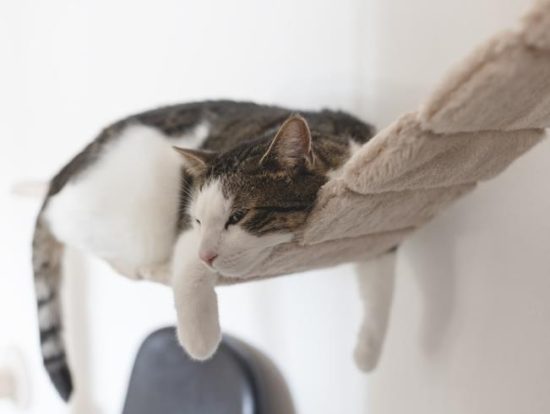
Changes in your cat’s behavior can also signal that something is amiss. If your usually playful and energetic cat becomes lethargic, hides more, or seems disinterested in their usual activities, it could be a sign that they aren’t feeling well and aren’t eating as they should. Addressing the underlying cause and getting your cat back to their normal eating habits is crucial to their overall health and well-being.
By closely monitoring your cat’s food and water intake, as well as any changes in their behavior, you can identify when it’s time to take action and ensure your feline friend receives the care they need to get back to a healthy appetite. Remember, when should i worry about my cat not eating, and what to do if cat won’t eat? Staying vigilant and seeking veterinary guidance can make all the difference.
How Long Can a Cat Go Without Eating?
Cats are known for their finicky eating habits, and it’s not uncommon for them to skip a meal or two. However, prolonged fasting can have serious consequences for their health. While cats can survive up to two weeks without food as long as they have access to water, they’ll likely only survive three to four days even with water.
Consequences of Prolonged Fasting
If a cat goes for two days without food, it can become malnourished and unwell. The lack of a reliable food source can lead to various health issues, including weight loss, dehydration, and electrolyte imbalances. As a result, the cat’s overall well-being and quality of life can be significantly impacted.
Hepatic Lipidosis (Fatty Liver Disease)
One of the most serious consequences of a cat not eating is the development of a condition called hepatic lipidosis, or fatty liver disease. When a cat doesn’t eat, its body starts to break down fat for energy, leading to an accumulation of fat in the liver. This can be a life-threatening condition if not treated promptly. Symptoms of hepatic lipidosis include lethargy, loss of appetite, vomiting, and jaundice (yellowing of the skin and eyes).
All cats need a consistent, balanced diet to maintain their health and well-being. If a cat stops eating for more than a day or two, it’s essential to seek veterinary attention to determine the underlying cause and provide appropriate treatment. Catching and addressing the issue early can greatly improve the cat’s chances of a full recovery.
Encouraging Your Cat to Eat
If you have to wait for a vet appointment or you’re trying to help your cat eat within the first 24 hours, there are some things you can try. First, make sure your cat’s getting plenty of water. Dehydration can make recovery longer and more complicated. Your next step is to try to get your cat to eat by using different food than what she’s used to, such as boiled chicken, white rice with yogurt, or meat-flavored baby food. Cats also aren’t huge fans of cold food, so trying to warm it up may encourage them to eat.
Trying Different Foods and Textures
Offering your cat a variety of food options, including different textures and flavors, can help encourage them to eat. Try soft, moist foods like canned cat food or homemade purees, as well as drier kibble or semi-moist treats. Experiment with various protein sources, such as chicken, turkey, or fish, to see what your cat prefers.
Creating a Stress-Free Environment
Cats are sensitive to their surroundings, and a stressful environment can contribute to a lack of appetite. Ensure your cat’s food and water bowls are clean and placed in a quiet, peaceful area of your home. Minimize disruptions and provide a comfortable, familiar space for your cat to eat.
Seeking Veterinary Advice
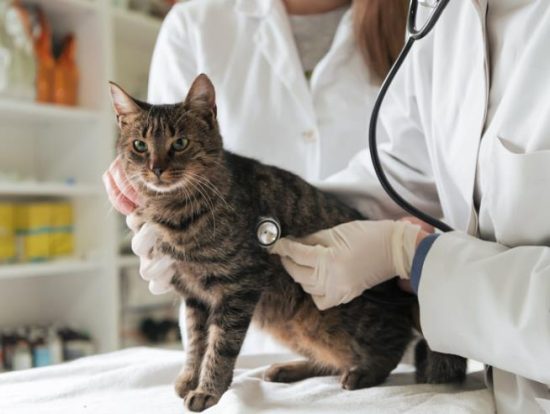
If your cat continues to refuse food or shows signs of illness, it’s important to seek veterinary care. Your vet can help determine the underlying cause of your cat’s lack of appetite and develop a treatment plan, which may include supplemental feeding or medications to stimulate their appetite. Addressing the root problem is crucial for your cat’s health and well-being.
When should I seek veterinary care?
If your cat has stopped eating for over 24 hours, it is recommended to seek veterinary attention. It is essential to determine the underlying reason why your cat has stopped eating and formulate an appropriate treatment plan. The longer a cat goes without eating, the higher the risk of developing secondary liver disease, known as hepatic lipidosis.
When it comes to determining when should worry about my cat not eating?, the general rule of thumb is that if your feline friend has not consumed any food for more than a day, it’s time to consult a veterinarian. This is because a cat’s body can rapidly enter a state of malnutrition and dehydration without a consistent food source.
FAQs on how long a cat can go without eating
What happens if a cat doesn’t eat for 3 days?
It’s important to emphasize that if a cat goes for two days without food, it’ll become malnourished and unwell. Cats can survive up to two weeks without food as long as they have access to water, although they’ll likely survive only three to four days even with water. The longer cats do not eat, the higher the chance of developing secondary liver disease.
How long can an indoor cat go without food?
Cats can survive up to two weeks without food as long as they have access to water, although they’ll likely survive only three to four days even with water. It’s important to emphasize that if a cat goes for two days without food, it’ll become malnourished and unwell.
Can a cat not eat for 12 hours?
Cats can generally go about 12 hours without eating without any major issues. However, if a cat goes for two days without food, it’ll become malnourished and unwell. It’s important to monitor your cat’s eating habits and seek veterinary care if they stop eating for more than 24 hours.
When should I worry about my cat not eating?
If your cat has stopped eating for over 24 hours, it is recommended to see a veterinarian. It is essential to determine why your cat quit eating and form a treatment plan. The longer cats do not eat, the higher the chance of developing secondary liver disease.
What happens if a cat doesn’t eat for 4 days?
Cats can survive up to two weeks without food as long as they have access to water, although they’ll likely survive only three to four days even with water. If a cat goes for two days without food, it’ll become malnourished and unwell. The longer cats do not eat, the higher the chance of developing secondary liver disease.
Can I force feed my cat if he’s not eating?
It’s generally not recommended to force feed a cat, as this can be stressful for the animal and may do more harm than good. Instead, try to encourage your cat to eat by offering different types of food, warming up the food, and ensuring they have a clean, quiet environment to eat in. If your cat continues not to eat, it’s best to seek veterinary advice.
What should I feed my cat if he won’t eat?
If your cat has a lack of appetite, you can try feeding them boiled chicken, white rice with yogurt, or meat-flavored baby food. Cats also aren’t huge fans of cold food, so trying to warm it up may encourage them to eat. It’s important to make sure their food and water bowls are clean and in a quiet area of the house.
What to feed a cat who won’t eat?
If your cat is refusing to eat, you can try offering them different types of food, such as boiled chicken, white rice with yogurt, or meat-flavored baby food. Warming up the food can also make it more appealing to your cat. It’s important to ensure their food and water bowls are clean and in a quiet area of the house.
What to do if a cat won’t eat?
If your cat has stopped eating for over 24 hours, it is recommended to see a veterinarian. It is essential to determine why your cat quit eating and form a treatment plan. In the meantime, you can try offering different types of food, warming up the food, and ensuring they have a clean, quiet environment to eat in. If your cat continues not to eat, it’s best to seek veterinary advice.


